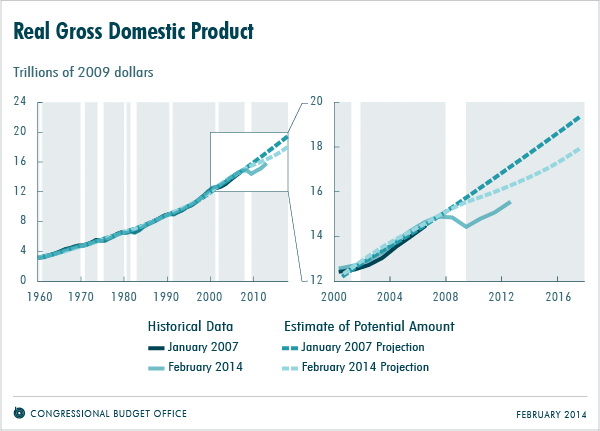Obama's Pricey Budget is Just a Big Government Political Pamphlet

It's been a while since federal budget proposals by the White House or congressional leaders (individual legislators and independent groups are a different matter) were much more than political pamphlets, so President Obama's proposed Fiscal Year 2015 budget continues an American tradition, albeit, a crappy one. At $3.901 trillion, though (up from $3.651 trillion in 2014 and rising to $5.912 trillion in 2024), the president's pamphlet seems a tad on the pricey side. Then again, the all-you-can-eat government it proposes couldn't possibly be done on the cheap, and nobody really expects Congress to adopt the whole package.
President Obama remarked at Powell Elementary School in Washington, D.C., "the budget is not just about numbers, it's about our values and it's about our future," and his expensive pamphlet lays out what he thinks those values ought to be, and how that future should look. To be honest, he seems to think it should look a bit like SimCity, with everything carefully planned and arranged. It includes "45 high-tech manufacturing hubs where businesses and universities will partner to turn groundbreaking research into new industries and new jobs," "access to…high-quality preschool and other early learning programs," "apprenticeships to connect more ready-to-work Americans with ready-to-be-filled jobs," and "over $1 billion in new funding for new technologies to help communities prepare for a changing climate today."
Also in the budget is an expansion of the Earned Income Tax Credit, tax credits for child care, and for college loans—all billed as "tax cuts" for "13.5 million working Americans" and the middle class. The cuts/credits would be offset by "closing tax loopholes, including the so-called 'Gingrich' and 'Carried Interest' provisions that let high-income professionals avoid the income and payroll taxes other workers pay."
In his message to Congress, the president bills this all as tax code simplification, but it looks more like shuffling benefits around among favored and disfavored categories of Americans.
And, again, the White House's proposed budget projects continuing increases in federal spending with big deficits (that $3.901 trillion in outlays is based on $3.337 trillion in receipts) at a time when the Congressional Budget Office (CBO) forecasts that "the gap between federal spending and revenues would widen steadily after 2015…a path that would ultimately be unsustainable."
The CBO's warnings are based on slightly lower federal outlays than those foreseen by the White House, and generally lower revenues. Possibly of interest, the CBO now forecasts lower gross domestic product over the next few years than was originally believed. According to a February 28 report, "From the earlier projection to the more recent, CBO's projection for potential output in 2017 declined by 7.3 percent." That just might have an impact on resources available to the federal government.

Then again, expensive and micromanaging though it may be, nobody really expects the president's budget to be adopted. Josh Voorhees at Slate calls it a "liberal wish list."
But that doesn't mean the federal government looks like it's poised to pass something more realistic.


Show Comments (242)